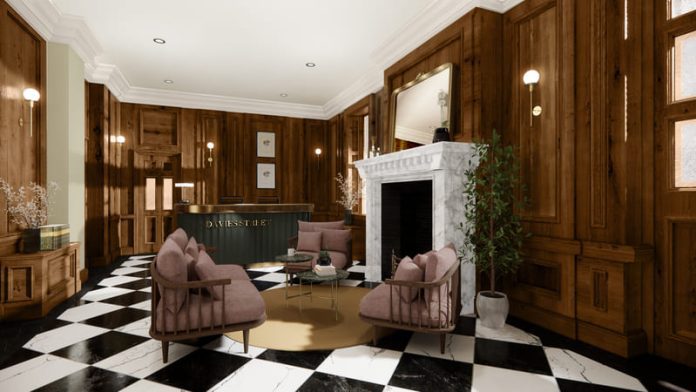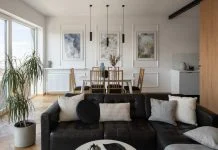By John Drover
This month, John Morgan, the Chief Executive of Morgan Sindall, declared that the death of the office has been exaggerated, as he’s witnessed demand for City space rise in recent months. The City has clearly bounced back from the difficulty of the pandemic, but the world of work has not returned to its pre-pandemic offering. With competition to retain employees increasing, companies are adapting to meet new employee demands by becoming more selective in their office space.
In fact, the office and the home should no longer be opposed, but rather synthesised. An informal, home-like space that is welcoming and yet high-end should be the goal for businesses. Breakout spaces provide room for thought, and private offices with set desks allow for the privacy and discretion that workers sometimes require.
Residential feel
Business leaders should now be searching for office space that is representative of a more residential feel. Premium offices that can foster productivity, quality, and calm can help ensure workers are not only returning to the office but are doing so with genuine enjoyment. Offices which are on the doorsteps of culture, amenities, bars will win out – unsurprisingly, hubs such as Mayfair and Bank embody the best of London working life, and this will incentivize all recruits, both young and old.
Stewart Bevan, for instance, runs management consultancy Kaihen from our 1 King Street building in London. At Argyll, he stresses he has found “a flexible hub which can be used as a drop-in area, with luxury spaces to enjoy coffee or tea, but also a private office space for confidential business with clients.”
Hotel, or office?
An article recently written in The Economist picked up on a new trend that has been explored by workers – something termed ‘work from hotel’. As an idea, it is misdirected, but it has the germs of good sense within. A hotel is a distraction and often an escape – procrastination, surely, would be an integral part of working in a hotel. What if, instead of bringing the office to the hotel, you brought the hotel to the office?
BNP Paribas research shows that demand for West End office space grew by 62% in the second quarter of this year, with Grade A office spaces accounting for over 50% of take-up. Perhaps this is because workers have too often associated traditional offices with something uninspiring, or even uncomfortable, and employers are now looking to upgrade as this no longer has to be the case. George Bernard Shaw wrote that a hotel should be a ‘refuge from home life’: surely, the office could learn from this? Everyone wants to stay in a hotel – does it not follow that an office that is genuinely comfortable, impressive, beautifully designed and well-located would be more enticing to workers?
Achieving the future
Residential, boutique, hotel-style. This is the future of the office. At Argyll, £27 million has been invested in a refurbishment programme, giving eight of our prime central London properties a complete interior upgrade, as well as updated technology and energy efficiency fittings, yet retaining the original heritage fabric. Grand Designs presenter and architect Damion Burrows is working to implement a refreshed, revitalised brand design to cater for the evolution of the office.
Furthermore, this translates through to customer service and flexibility. Too often, clients, or tenants, are not a priority. Businesses should be allowed to grow, to reach their potential, to succeed – and the office is not just a backdrop to this but an active tool and participator in the business journey. As Stewart Bevan says, “I could easily expand my team further down the line and that’s why a flexible model is so key for our company’s growth.”
Of course, this vision for the future of the office is only, and should only, be achievable if it can be a model of sustainability. This can be a complementary goal – for example, installing new technology and upgrading equipment not only helps businesses, but can also improve energy efficiency and reduce carbon emissions.
Grandeur and elegance, with all the ease of the home office – businesses now see this as their future. The office shouldn’t be somewhere to play, but neither should it be somewhere that invokes ‘work’ in the most grey and crude way. It can be somewhere which inspires, which concentrates, which facilitates success.
Creating offices that are aligned with that future is certainly not an easy task, but nor is it an onerous one. The built environment is beautiful, and we must celebrate heritage and uniqueness around us, looking to create spaces that are in harmony with their surroundings. Customers are demanding that workspaces be modern, forward-facing and cutting-edge in provision. This doesn’t mean we need to abandon the old ideas of the office altogether but adapt to new demands.
About the Author
 John Drover is the Chief Executive Officer of Argyll
John Drover is the Chief Executive Officer of Argyll








